لورا سکورد
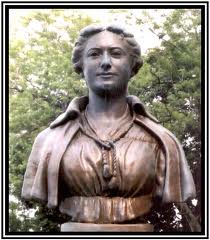
فایل داستانهای آموزشی زبان انگلیسی
Laura Secord
Women have often played an important role in war. They have worked in munitions factories, made clothing and supplies, encouraged and entertained soldiers, nursed the wounded, and acted as spies. It is rare, however, for a woman to have played a key role in determining the course of a war. Many people believe that Laura Secord played such a role in the War of 1812. Laura Secord was born in the United States at the time of the American Revolution. Her father had fought in the U.S. army against the British. But when land in the American States became scarce, the family moved to Ontario, Canada, and so back under British rule. Laura married into a pro-British family, and adopted their political views. So when the War of 1812 broke out between Britain and America, her husband, James Secord, joined the Canadian militia to defend Ontario against the Americans. The American invasion of 1812 was defeated at Queenston Heights, and some of the wounded were brought to Laura’s house in nearby Queenston. Laura went out to the battlefield where she found her husband, James, who was severely wounded, and brought him home.
In 1813, the U.S. invasion was more successful. Parts of Ontario close to the U.S. border were occupied by American troops. Local families were expected to provide room and board for U.S. officers. It was sometimes possible, therefore, for Canadians to overhear American officers discussing military strategy, either in their homes, or in the local tavern. The situation in Ontario looked desperate in the Spring of 1813. The whole province seemed likely to fall into American hands. In June, Laura overheard talk of an American attack on the British outpost at Beaver Dams. Her husband was still suffering from war injuries, and she had to look after him and their children. Nevertheless, she resolved to go to warn the British commander. Possibly, Laura did not intend to walk the whole way herself. She hoped to be able to pass on the news to someone else along the way. First, she would have to make up a story to get past the American sentries. She left Queenston in early morning and walked nineteen miles to the neighbourhood of Beaver Dams by nightfall. She still had to cross a wide stream and climb up the Niagara Escarpment. There she came upon an encampment of Indians who were assisting the British. Their war cries in the moonlight terrified her, but she insisted on being taken to the British commander. Finally, one of the chiefs escorted her to British headquarters, and she was able to tell Fitzgibbon the American plan of attack.
When the Americans arrived in the neighbourhood of Beaver Dams, the Indians had prepared an ambush for them. A running fight ensued between the American force of 570 soldiers and 450 Indians supporting the British. At this point, Fitzgibbon arrived with 50 British regulars. Seeing the Americans disorganized and surrounded by the Indians, Fitzgibbon boldly demanded their surrender. By telling the American Commander Boerstler that he was facing huge British and Indian forces, Fitzgibbon induced the American leader to turn over his whole army to the British. Although only small armies were involved at Beaver Dams, the battle had great significance. Afterwards, the Americans stayed behind their walls for the rest of the year.
The U.S. government recalled their commander-in-chief. British and Canadian morale increased, and Laura’s home in Queenston was restored to British control. Laura Secord’s story was little known until 1860. She was an old woman in her eighties when she was presented to the visiting Prince of Wales, later King Edward VII. He awarded a gift of money for her services. Her story then became famous; today her home in Queenston, Ontario, is an historical museum and a popular tourist attraction.
Munitions
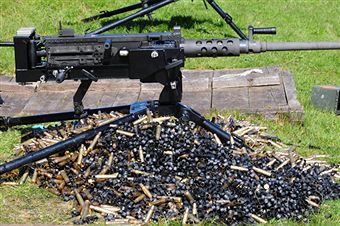
Source1
Military weapons, ammunition, equipment, and stores:
Reserves of nuclear, chemical, and conventional munitions
Munitions factories
Source2
Military supplies such as bombs and guns
Scarce

Source1
(Especially of food, money, or some other resource) insufficient for the demand:
As raw materials became scarce, synthetics were developed
Occurring in small numbers or quantities; rare:
The freshwater shrimp becomes scarce in soft water
Source2
Comparative scarcer, superlative scarcest If something is scarce; there is not very much of it available:
Food was often scarce in the winter.
There was fierce competition for the scarce resources
Source 3
Deficient in quantity or number compared with the demand: not plentiful or abundant
Examples of scarce
Food was getting scarce during the drought.
Food was a bit scarce last winter
Synonyms: exiguous, hand-to-mouth, light, poor, skimp, skimpy, slender, slim, spare, sparing,
Antonyms: abundant, ample, bountiful, copious, generous, liberal, plenteous, plentiful
Tavern
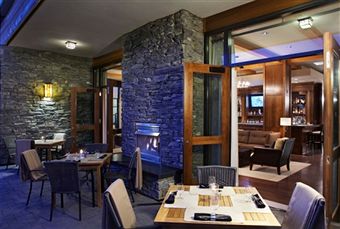
Source1
(Chiefly archaic or North American)
An inn or public house
Source2
1 British English old use a PUB where you can also stay the night
2 a word for a bar, often used in the name of a bar
Murphy’s Tavern
Source 3
1: an establishment where alcoholic beverages are sold to be drunk on the premises
2: INN
Examples of tavernA seedy section of the city’s waterfront that was rife with cheap taverns, tattoo parlors, and run-down flophouses
A colonial-era tavern that has been serving weary travelers for two and a half centuries
Synonyms: bar, cafe, grogshop [chiefly British], pub, public house [chiefly British], saloon, taproom, barroom, watering hole, watering place
Nightfall

Source1
The onset of night; dusk
Source 2
Old-fashioned The time when it begins to get dark in the evening [= dusk]:
Don’t worry; we’ll be back by nightfall.
Source 3
The close of the day: dusk
Examples of nightfall
When nightfall came, we were still waiting for the electricity to come back on.
Since you aren’t taking a flashlight, make sure you’re back at camp by nightfall
Synonyms: eve, evenfall, evening, eventide, gloaming, night, dusk, sundown, sunset, twilight
Antonyms: cockcrow, dawn, dawning, daybreak, daylight, morn, morning, sunrise, sunup
Encampment
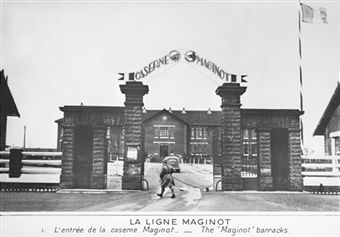
Source1
A place with temporary accommodation consisting of huts or tents, typically for troops or nomads
A prehistoric enclosed or fortified site, especially an Iron Age hill fort
The action of setting up a camp
source2
A large temporary camp, especially of soldiers:
A military encampment
Source 3
The place where a group (as a body of troops) is encamped
A recreational area that will serve as this year’s encampment for the Scouts’ jamboree
Synonyms: campground, campsite, camp
Ambush
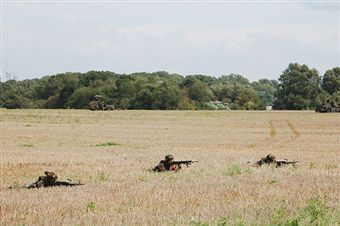
Source1
A surprise attack by people lying in wait in a concealed position:
Seven members of a patrol were killed in an ambush
There might be terrorists waiting in ambush
Source2
A sudden attack on someone by people who have been hiding and waiting for them, or the place where this happens:
The soldiers were killed in an ambush.
In winter the danger of ambush is much reduced.
Lie/wait in ambush
Armed police lay in ambush behind the hedge.
Source 3
1: a trap in which concealed persons lie in wait to attack by surprise
2: an attack especially from an ambush
Examples of ambushMany soldiers were killed in the ambush.
The soldiers were lying in ambush, waiting for the enemy to approach
Synonyms: ambushment, trap
Regular

Source 1
A soldier whose permanent job is in the army
Source 2
One who is regular: as
a: one of the regular clergy
b: a soldier in a regular army
c: one who can be trusted or depended on
A party regular
Synonyms
: fighter, legionary, legionnaire, man-at-arms, solder, serviceman, trooper, warrior
Antonyms: civilian